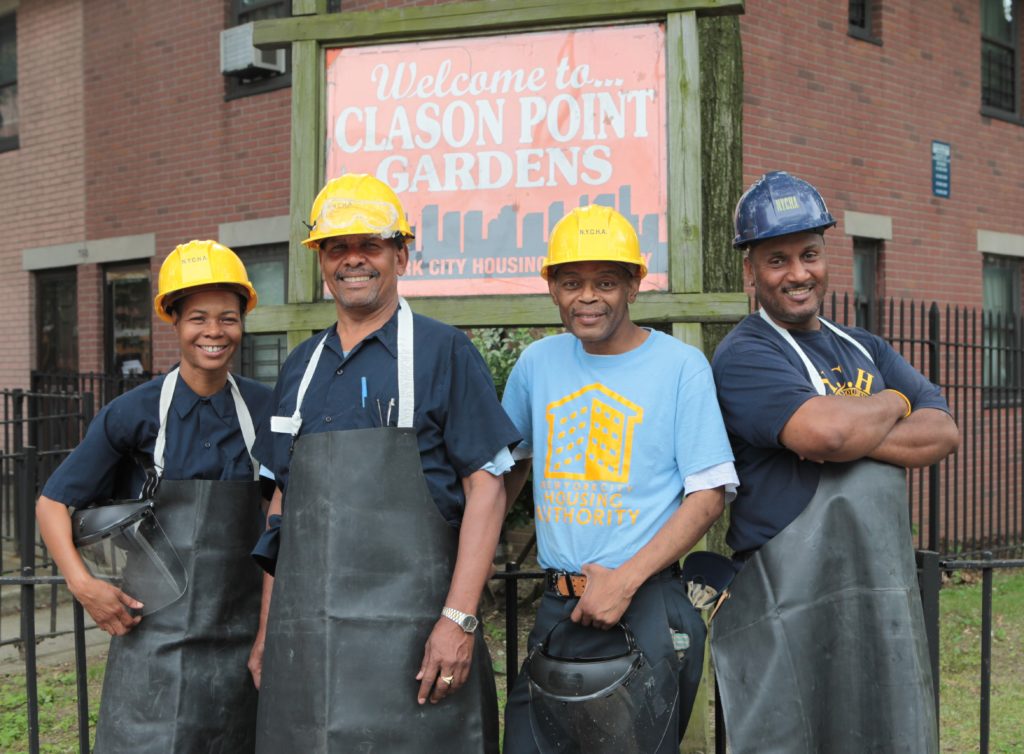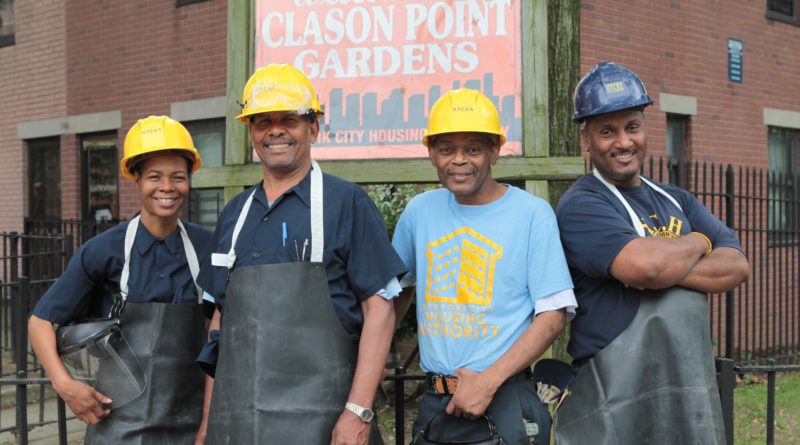Safety Comes First
 In recognition of National Safety Month, here are some tips from NYCHA’s Office of Safety and Security for staying safe on the job and at home. Have questions? Contact the Office of Safety and Security at 212-306-8800 or SafeNYCHA@nycha.nyc.gov.
In recognition of National Safety Month, here are some tips from NYCHA’s Office of Safety and Security for staying safe on the job and at home. Have questions? Contact the Office of Safety and Security at 212-306-8800 or SafeNYCHA@nycha.nyc.gov.
Prevent Slips, Trips, and Falls
You might not think that slipping at home or tripping on a sidewalk are serious risks, but they can be deadly. In fact, falls are the third leading cause of unintentional, injury-related deaths.
- Remove clutter, including electrical cords and other tripping hazards, from walkways, stairs, and doorways.
- Always wear proper footwear.
- Clean up spills immediately.
- Install nightlights in the bathroom, hallways, and other areas to prevent tripping and falls at night.
- Place non-slip adhesive strips on stairs and non-skid mats in the shower and bathroom.
- Don’t be a “distracted walker” – avoid cell phone use while walking, especially near crosswalks. Use caution while walking near intersections and other busy areas while wearing headphones.
Stay Well
Life is full of stressors. That makes it doubly important to work on staying cool, calm, and collected.
- Fatigue impacts worker safety. Try to get seven hours of sleep each night.
- Take the stairs instead of the elevator or take a brisk walk during your lunch break. Physical movement can energize you, even if it’s brief.
- Take a free exercise class from the NYC Parks Department.
- Get regular medical check-ups, such as annual physicals and age-appropriate tests.
- Take advantage of workplace wellness programs and choose healthy snacks each day.
Prepare for the Unexpected
Emergencies can occur at any time. Be ready for whatever might happen.
- Create an emergency kit for your home and car, including a list of important phone numbers.
- Develop a home emergency plan for your family.
- Participate in emergency drills at work and pay attention to the lessons learned.
- Learn first aid and CPR.
- Check your smoke detectors and carbon monoxide detectors regularly to make sure they work. Change the batteries if necessary.







